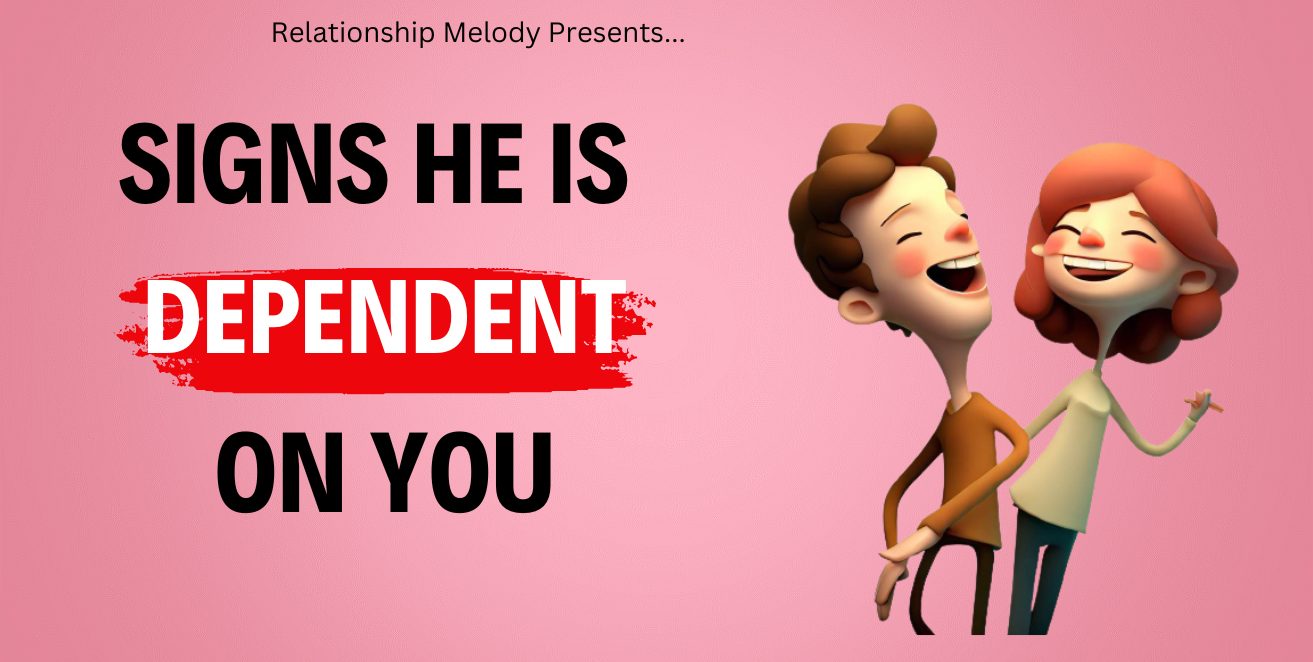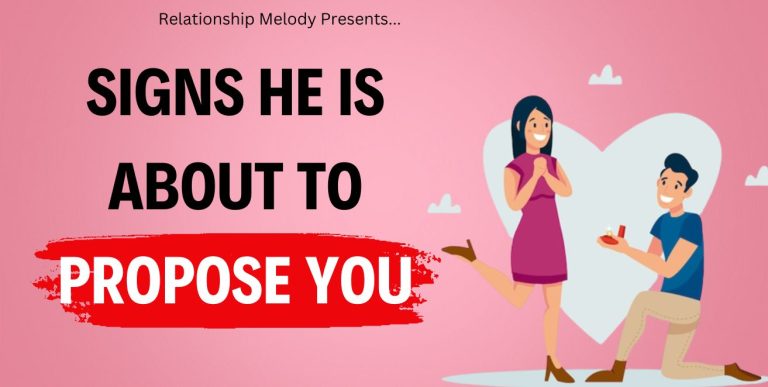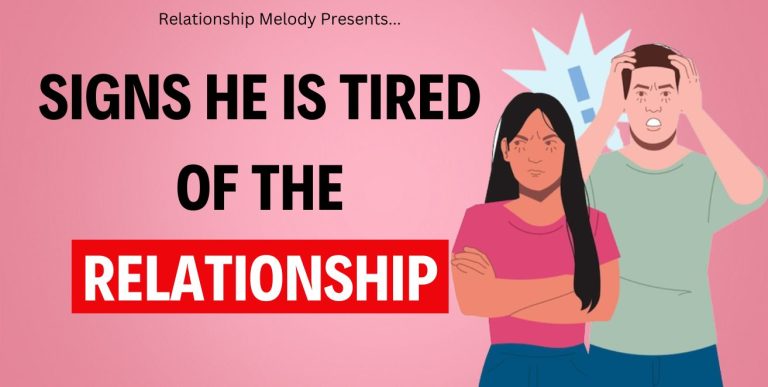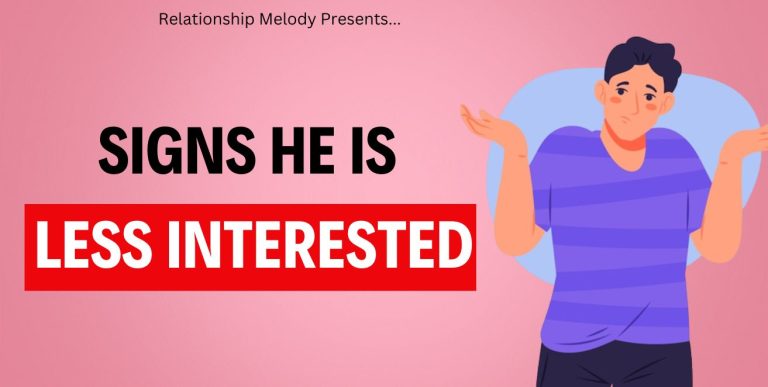25 Signs He Is Dependent on You
In a healthy relationship, it’s important to have a sense of interdependence, where both partners support and rely on each other. However, there’s a fine line between healthy interdependence and one partner becoming excessively dependent on the other.
When dependency crosses into unhealthy territory, it can lead to an imbalanced dynamic that may negatively impact both individuals involved. In this blog post, we’ll explore 25 signs that indicate your partner may be overly dependent on you.
While it’s crucial to approach this topic with empathy and understanding, recognizing these signs can help you address any potential issues and foster a healthier relationship.
25 Signs He Is Dependent on You
Here are 25 Signs you need to know.m
#1 Constant Need for Validation:
An individual who depends heavily on their partner may seek constant reassurance and validation of their worth and abilities. They rely on external praise and struggle to validate themselves.
#2 Lack of Personal Hobbies or Interests:
If your partner seems to have little or no personal hobbies or interests outside of the relationship, it may indicate dependency. They may struggle with being alone and rely on you for their source of enjoyment.
#3 Inability to Make Decisions:
Dependency often manifests as an inability to make decisions without seeking your approval or guidance. Your partner may lack confidence in their judgment and defer to you for even minor choices.
#4 Fear of Disapproval:
An individual who is overly dependent on you might have an intense fear of disapproval or rejection. They may go to great lengths to please you and avoid any form of disagreement.
#5 Frequent Displays of Jealousy:
Excessive jealousy can stem from a fear of losing you. A dependent partner may exhibit jealousy even in innocent situations, as they struggle with feelings of insecurity.
#6 Emotional Instability:
Constant reliance on you for emotional support is a common sign of dependency. Your partner may experience emotional highs and lows and struggle to regulate their own emotions without your presence.
#7 Limited Social Circle:
A lack of friends or a small social circle can indicate dependency. Your partner may rely solely on you for social interaction and support, neglecting to cultivate relationships outside of the relationship.
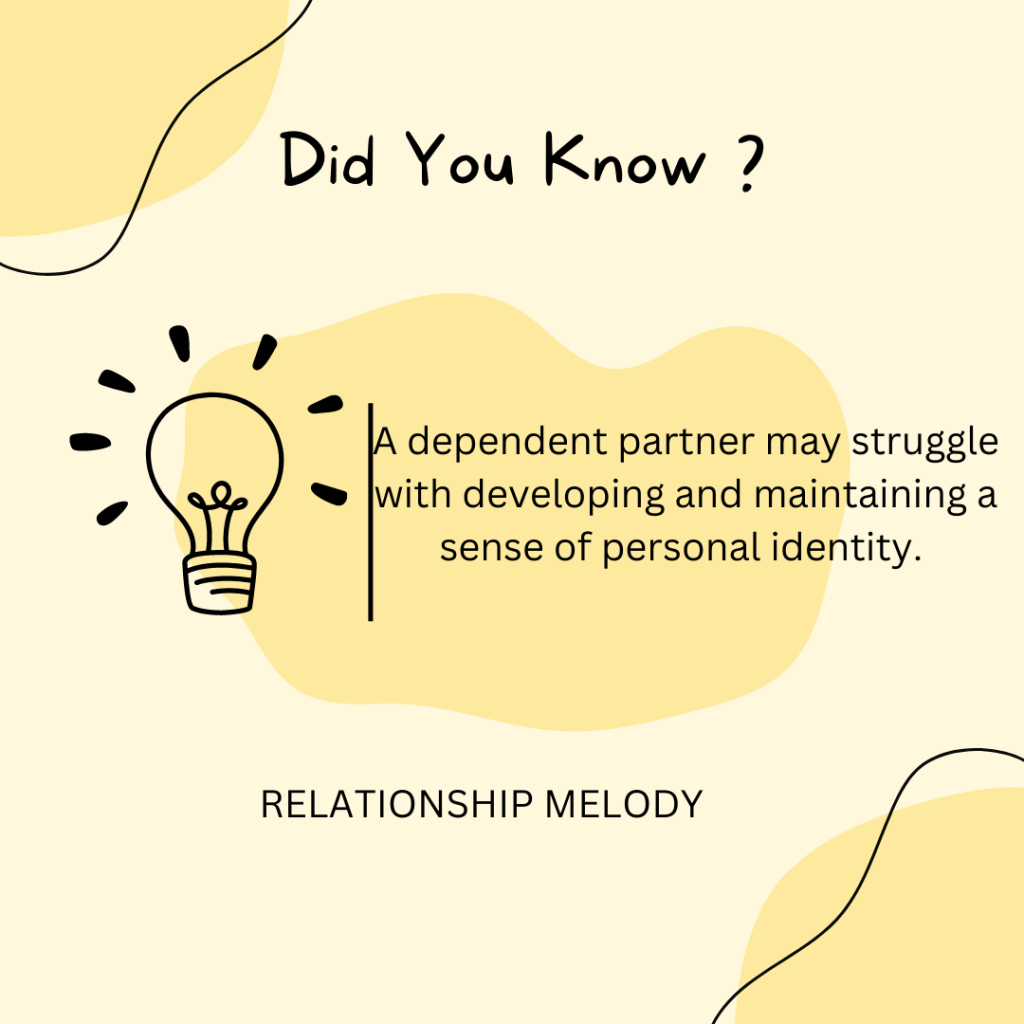
#8 Need for Constant Communication:
If your partner becomes anxious or distressed when you’re not in constant contact, it may indicate dependency. They rely on constant communication to feel secure and connected to you.
#9 Fear of Independence:
A dependent partner often fears being alone or independent. They may feel uncomfortable with the idea of pursuing their own goals or making decisions without your input.
#10 Difficulty Setting Boundaries:
Dependency can lead to a blurred sense of boundaries. Your partner may struggle to establish and respect personal boundaries, often invading your space or privacy.
#11 Reluctance to Spend Time Apart:
A strong aversion to spending time apart is a significant sign of dependency. Your partner may feel uneasy or even panicked at the thought of being away from you, seeking constant togetherness.
#12 Financial Dependence:
If your partner relies on you financially, it can be a sign of dependency. They may struggle to support themselves independently and rely on you to meet their financial needs.
#13 Lack of Self-Initiative:
Dependency often results in a lack of self-initiative. Your partner may struggle to take charge or make decisions without your guidance or direction.
#14 Emotional Manipulation:
Some dependent individuals resort to emotional manipulation to maintain control or keep you close. They may use guilt or emotional coercion to prevent you from asserting your independence.
#15 Extreme Need for Affection:
An excessive need for physical affection and constant reassurance of love can indicate dependency. Your partner may rely on physical intimacy as a way to feel validated and secure.
#16 Difficulty Expressing Disagreements:
A dependent partner may find it challenging to express disagreements or assert their own opinions. They may fear conflict and prioritize maintaining harmony over expressing their true feelings.
#17 Lack of Personal Goals:
Individuals who are overly dependent on their partner may lack personal goals or aspirations. They may struggle to identify their passions and rely on your goals as their primary focus.
#18 Difficulty Handling Criticism:
Dependency can manifest as an inability to handle criticism or feedback. Your partner may take even constructive criticism personally and struggle with self-reflection.
#19 Excessive Reliance on Your Support:
A dependent partner may rely heavily on your emotional, logistical, or practical support, often neglecting to develop the skills or resources to handle challenges independently.
#20 Insecure Attachment Style:
Those with an insecure attachment style tend to exhibit dependency. They may constantly seek reassurance and validation, fearing abandonment or rejection.
#21 Unwillingness to Seek Professional Help:
When faced with challenges or personal issues, a dependent partner may be resistant to seeking professional help or guidance. They may rely solely on you for support, even when professional intervention is necessary.
#22 Unbalanced Power Dynamics:
Dependency can lead to imbalanced power dynamics in a relationship. Your partner may defer to your decisions and have difficulty asserting their own needs and desires.
#23 Lack of Personal Identity:
A dependent partner may struggle with developing and maintaining a sense of personal identity. They may define themselves solely through their relationship with you, lacking a strong sense of self.
#24 Emotional Drain on You:
If you find yourself consistently drained emotionally due to your partner’s constant need for support, it may indicate an unhealthy level of dependency.
#25 Resistance to Change or Growth:
Dependency often results in resistance to change or personal growth. Your partner may struggle with adapting to new situations or making positive changes in their life without your guidance.
Read More: Signs He Is Desperate For You
Conclusion:
Recognizing signs of dependency in a relationship is the first step toward addressing and resolving any imbalances. It’s important to approach these signs with empathy, open communication, and a willingness to support your partner’s personal growth.
By fostering independence, encouraging self-reflection, and establishing healthy boundaries, you can work together to cultivate a relationship that allows both individuals to thrive.
Remember, seeking professional help or couples therapy can provide valuable guidance and support when navigating complex relationship dynamics.
Liked Our Article? Feel Free To Support Us
Our Patreon link: https://www.patreon.com/RelationshipMelody
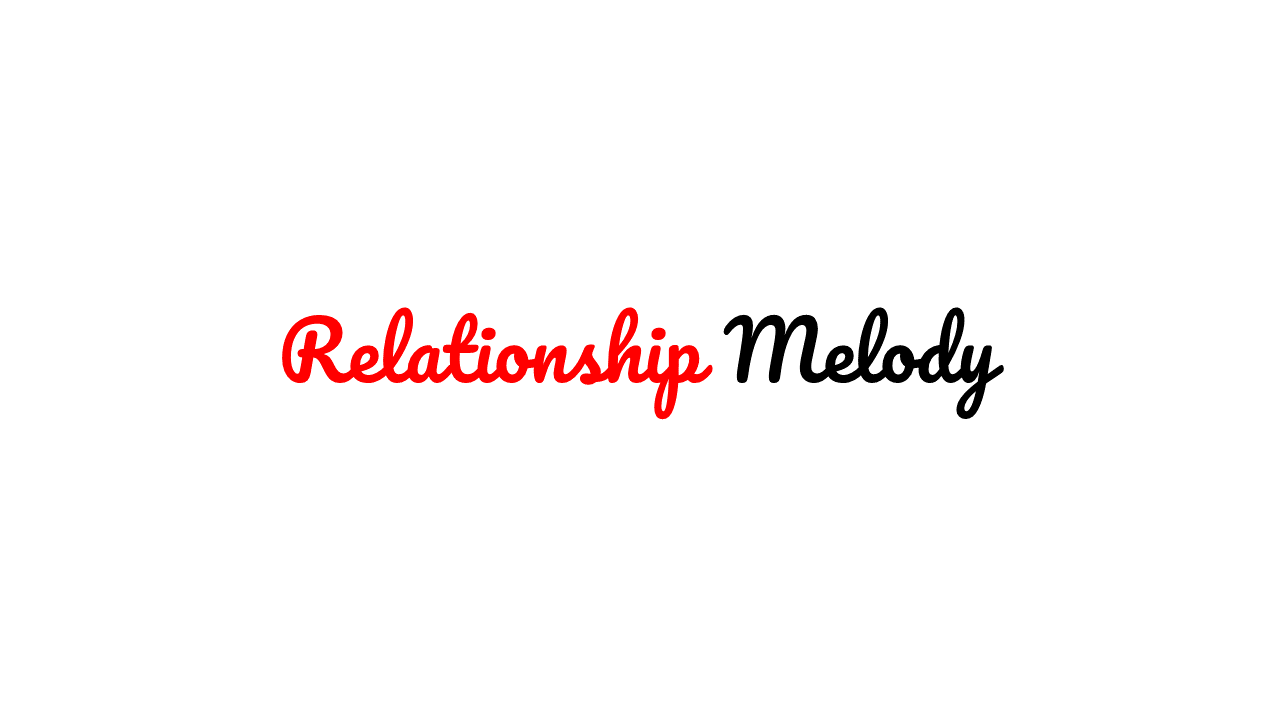
Welcome to Relationship Melody! Our website is dedicated to all things on relationships, dating, and love! We are passionate about helping you navigate the ups and downs of love, and our goal is to provide you with valuable insights and information that will make your journey toward a fulfilling relationship smoother and more enjoyable.

